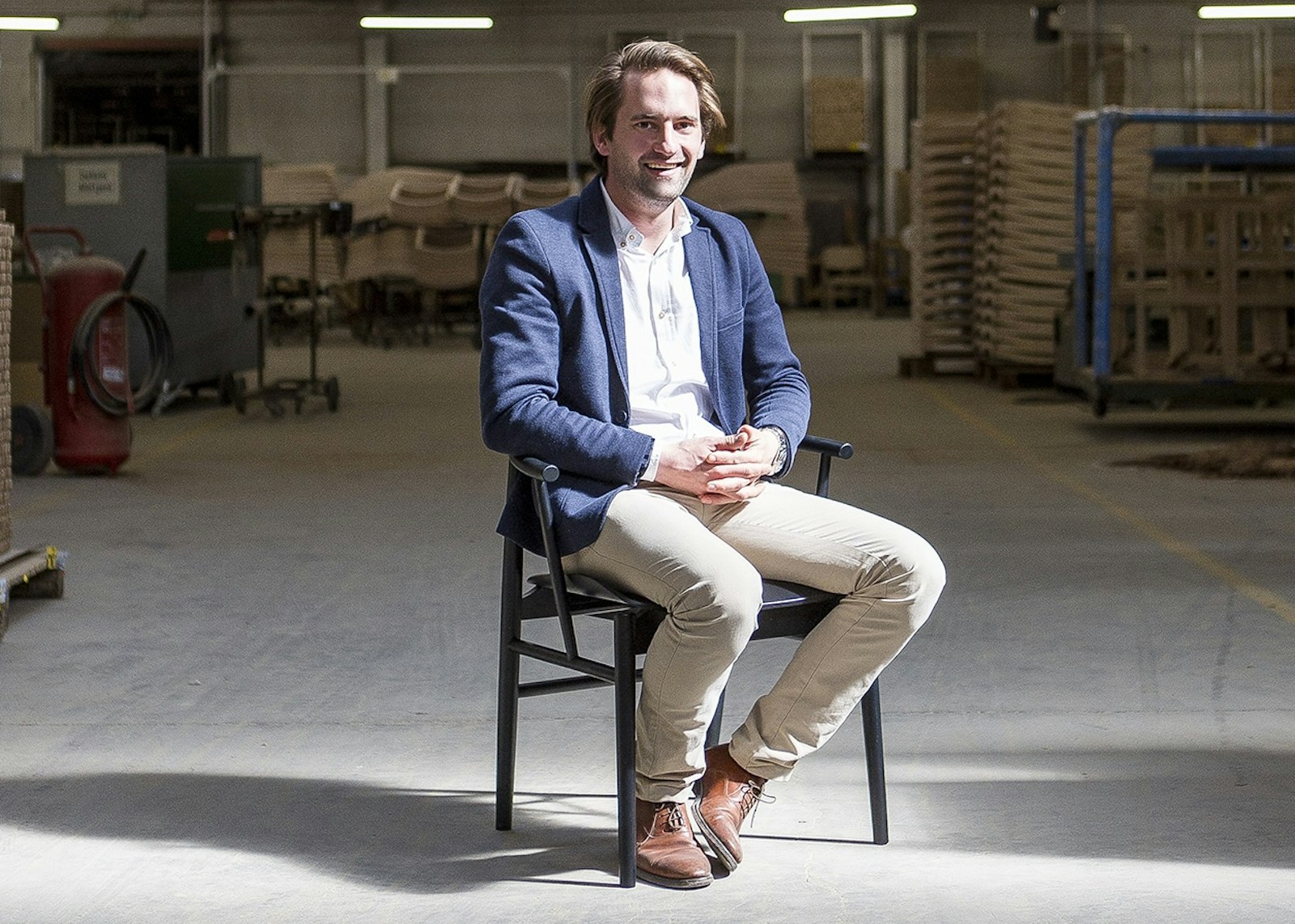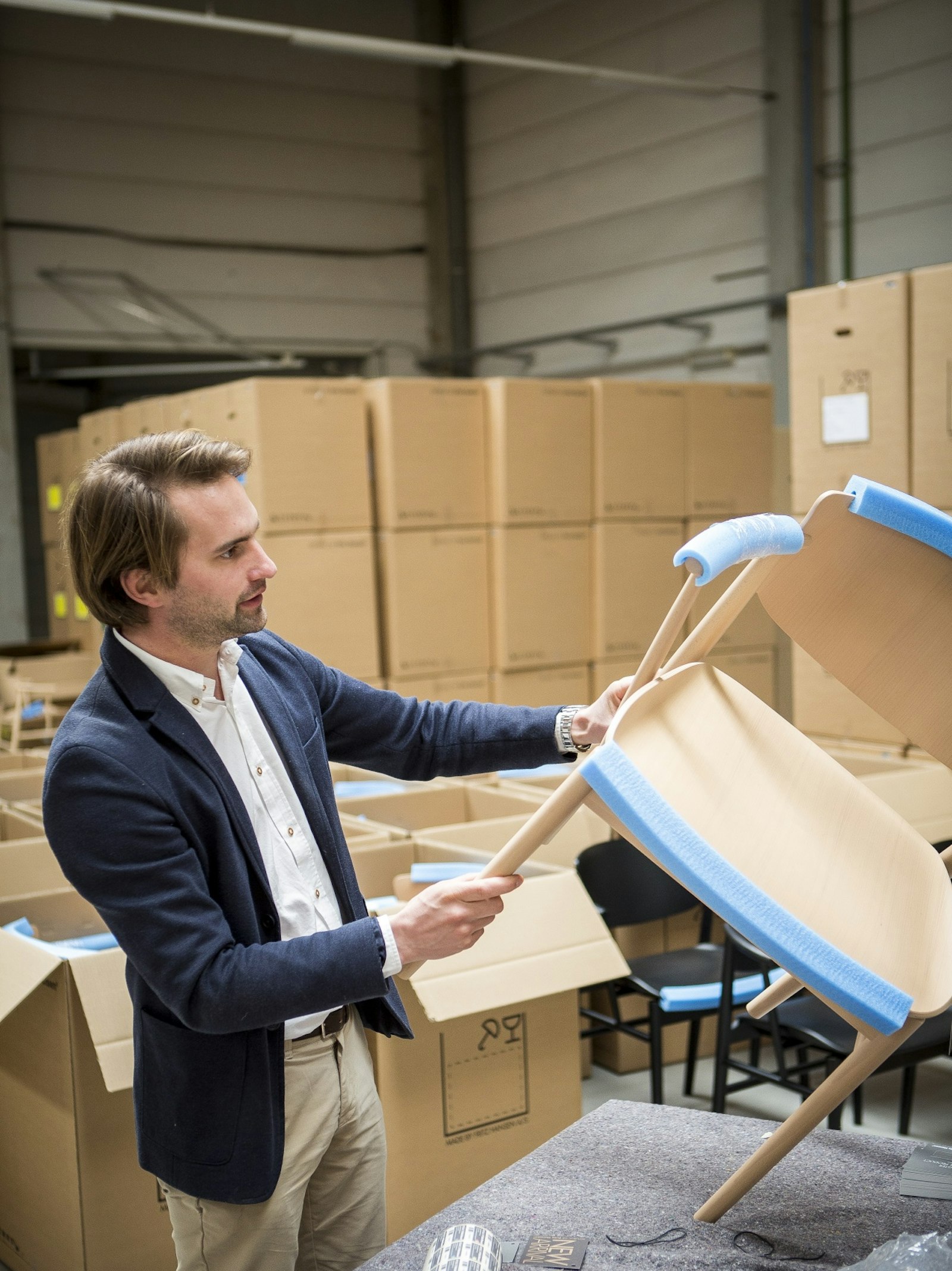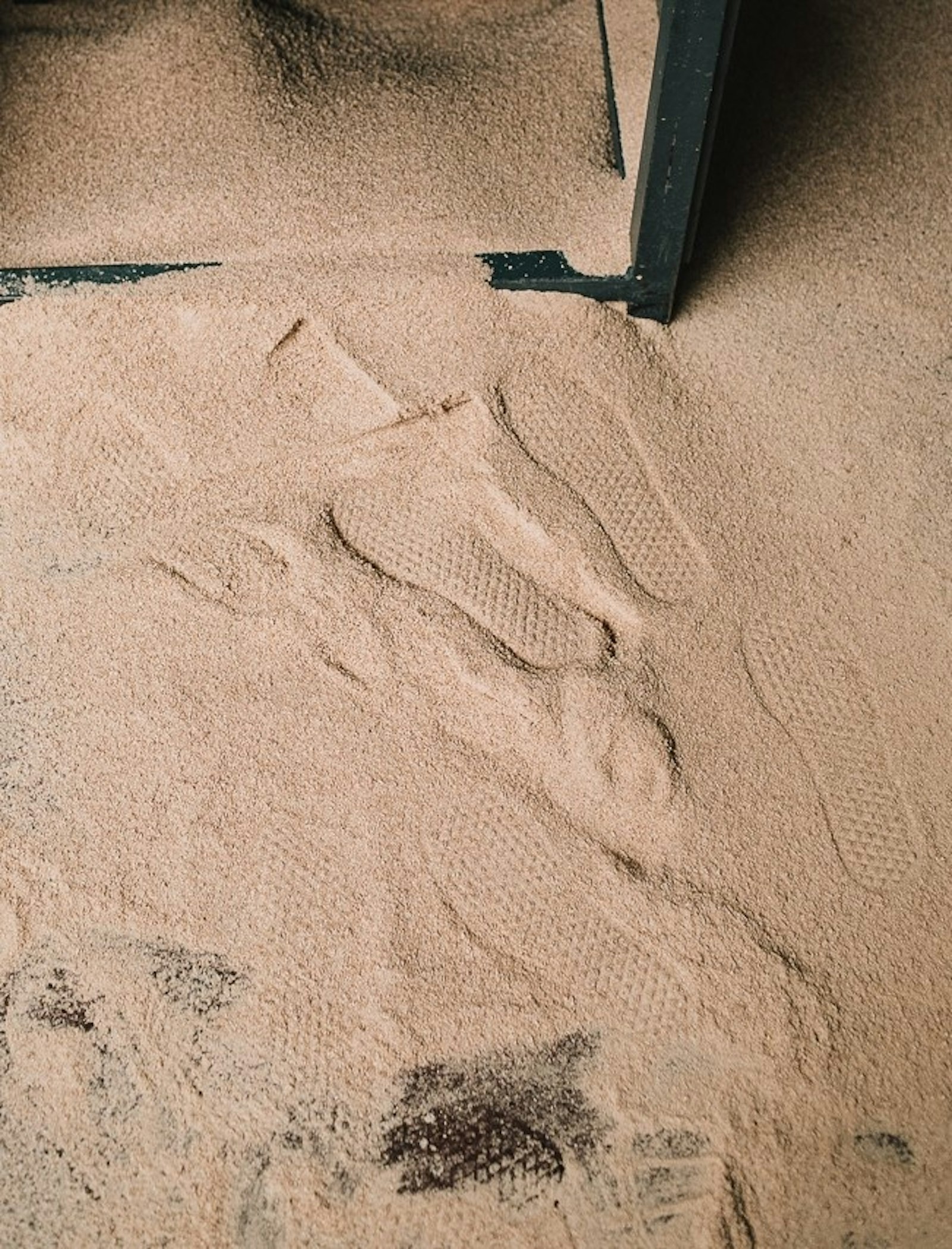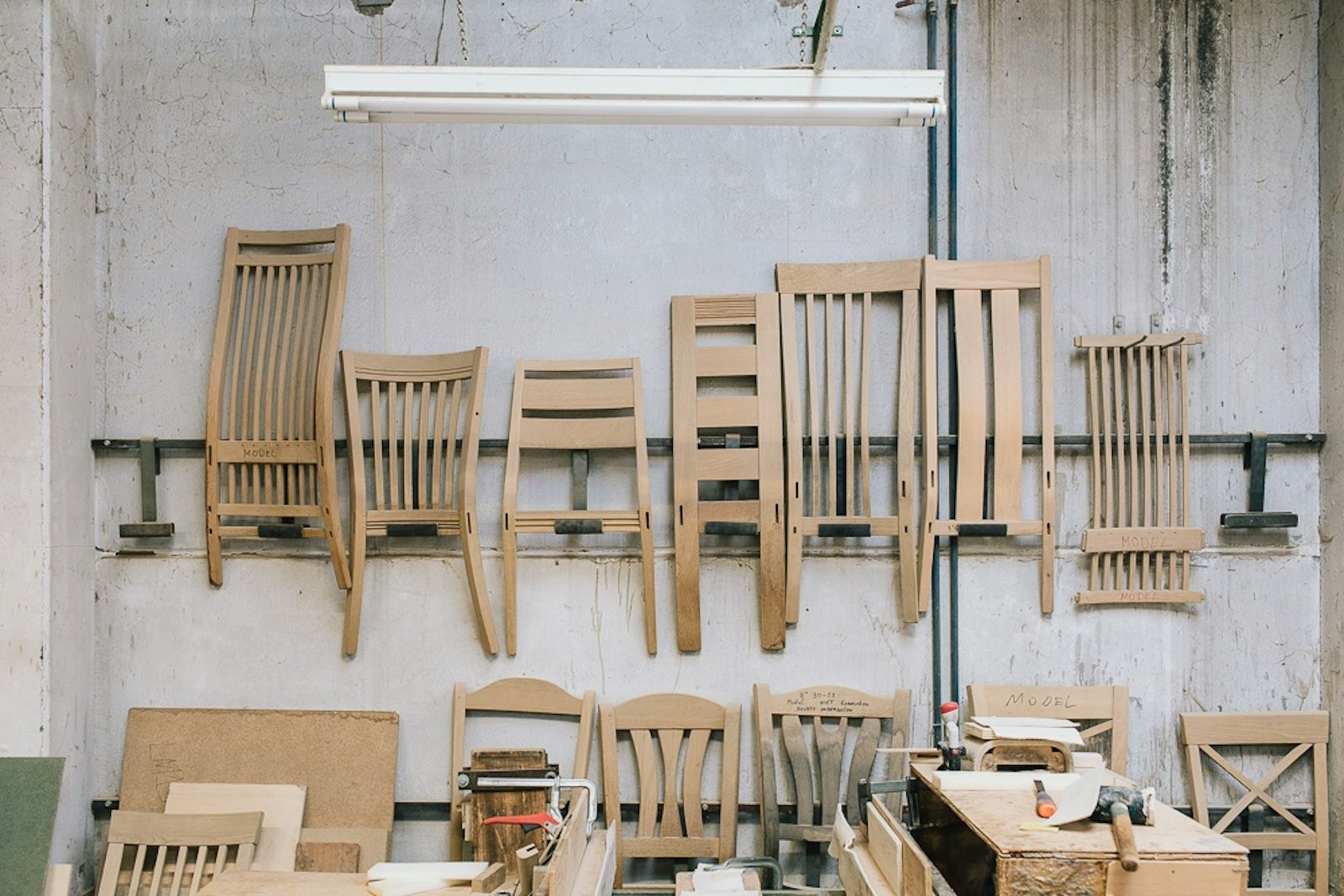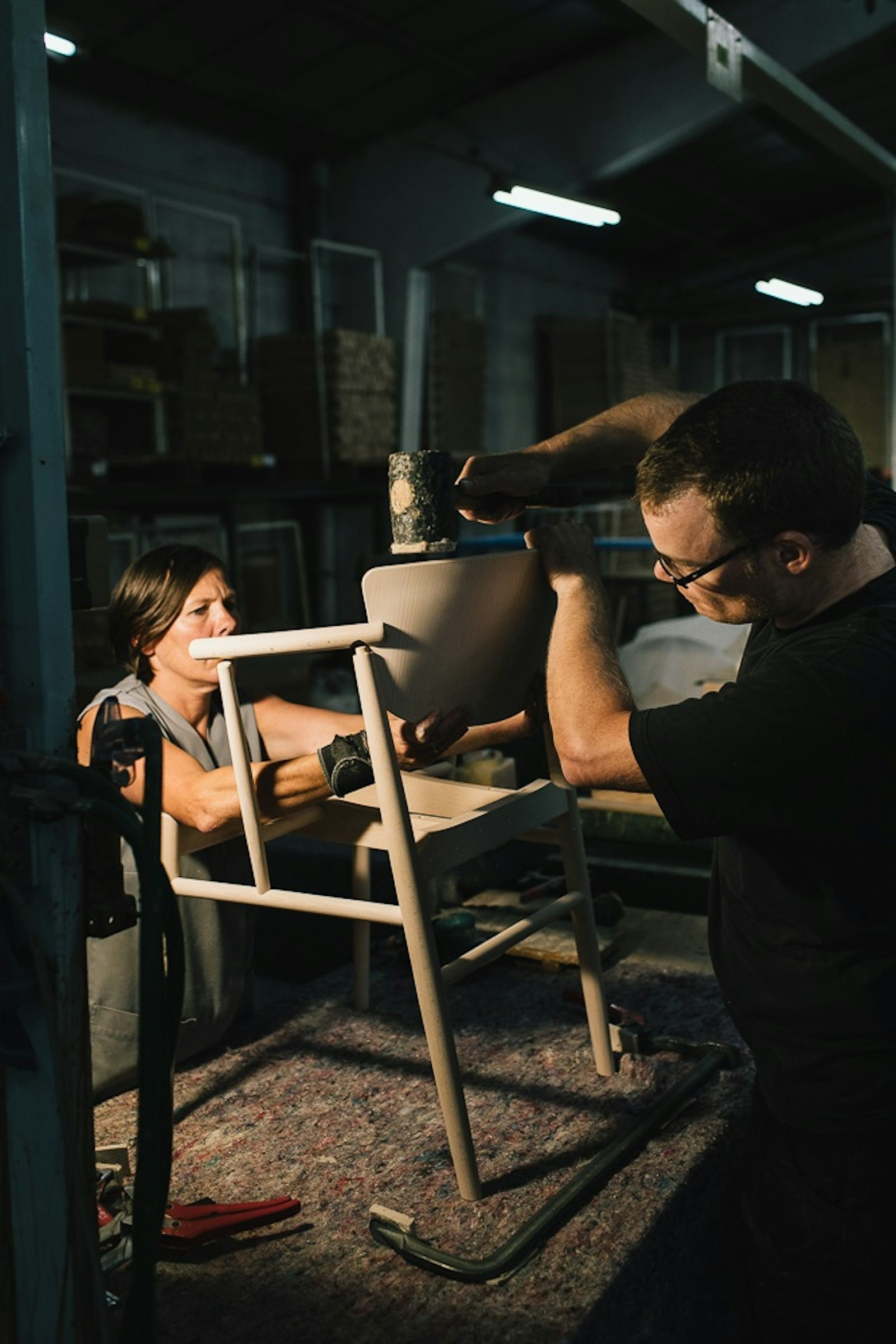de Velde
De Zetel
De Zetel (The Sofa) from West-Flanders has never produced a single sofa. Wooden chairs, however...
Do you practice the same profession as your great-grandparents a century ago? David Behaegel (29) does; he heads a chair factory a stone’s throw from where his great-grandfather Cyriel Behaegel built the same in his workshop in 1923, in Ardooie near Roeselare. Cyriel exhibited a healthy level of ambition in his endeavours: he baptised his factory De Zetel, as he intended to produce chairs as comfortable as sofas. Just to be clear, De Zetel has never produced any actual sofas. They did, however, produce massive numbers of wooden chairs for kitchens and churches, especially after the Second World War. Chairs that mainly ended up in Flanders. So, you may well have already become intimately familiar with a wooden chair from De Zetel. At your grandparents’ house, or during Mass. Although perhaps it’s more likely that you’ve encountered these chairs at Lunch Garden, McDonalds or Le Pain Quotidien.
"We do still make church chairs” , David explains. “That market has shrunken now, of course. So has the demand for kitchen or living room chairs. Did you know that in the old days, Flemish families owned an average of eighteen chairs? Eight in the living room, six in the kitchen and another six outside. These days that’s a lot fewer. Since the new millennium, we have begun focusing even more strongly on the project market, supplying hospitals, offices and restaurants. We do so in partnership with architects and interior designers. Our entire factory has been designed to facilitate rapid switching; three weeks to deliver several hundred chairs is no problem, for example. We keep parts in stock for all our models: enough for 25,000 chairs. And each week, 3,000 chairs or so leave the factory. From raw lumber to finished product.” Roeselare recently provided the Ascot race track in Great Britain with 2,500 new chairs.
Fifteen plus one
Another new move after the crisis a decade ago was the launching of a design collection. Under the name Z-Creations, since 2012 they have collaborated with leading designers like Luc Vincent, Stefan Schöning, Bob Van Reeth and Studio Segers on a collection of purely Belgian chairs for both projects and home use. They intend to pursue this path even more vigorously in 2019; the collection has been recently renamed ZET and further refined. "Flexibility is our trump card. If you need fifteen white chairs and one blue one, we can make it happen”, explains Niels Ringoot, the Business Unit Manager for ZET.
However, De Zetel hasn’t been awarded the Henry van de Velde Company Award 19 simply for the smart, efficient production set-up or the partnerships with designers alone. “The jury chose De Zetel primarily for their global position on the market, resulting from the technical expertise and equipment they have built up and made available to both manufacturers and designers”, is the answer. So, the machines and the people.
In the factory I can see for myself what that means in practice: the drying sheds with towering stacks of beech wood, but also oak, walnut and ash. I see eight (!) high-frequency ovens for the bending of plywood and solid wood chair parts using jigs, and two steamers, which can produce strong curves in oak in particular. I see a robot arm drilling holes with great precision in legs, seats and armrests. I see another production line for sawing, sanding and finishing. I see a special router creating joins in the solid wood chair legs (an important distinction, as some other manufacturers are wont to glue these together instead, a much less durable solution). I see a fully equipped metal shop that spans three rooms for the meticulous, in-house maintenance of saw blades, grinding discs and drill bits. I see a prototype area, where each part of every chair in production is stored. I see paint and spray booths and a retro-futuristic conveyor where chairs are hung to dry. I see a sort of tumble dryer sanding every nook and cranny of a nearly finished frame after its first coat of paint. And then it gets sprayed again. I see people fitting chairs together, upholstering, packaging and readying them for delivery. All in all, De Zetel employs almost sixty people, fifty of whom are labourers.
Puzzle pieces
It’s those actual machines, people and processes that, since the 1950s, have allowed De Zetel to act as a supplier for other manufacturers who cannot produce specific models for themselves. David’s father Geert worked for pretty much all Belgian furniture manufacturers back then. "Unfortunately most of those either disappeared or had to move elsewhere”, David notes subtly. De Zetel’s manufacturing was usually anonymous, as was and is common in the sector. Until recently that is. Last year the Danish brand Fritz Hansen decided no longer to hide the fact that though they make their famous Ant and Egg chairs themselves, their latest chair, the N01 by the Japanse Nendo design collective, is produced with the help of David’s team in Roeselare. "The N01 chair was developed with great attention to its carefully designed structure. The chair is practically a puzzle, consisting as it does of twenty-three pieces of wood combining solid elements with veneer. After industrial fabrication of the components by a Belgian family business, these are hand-assembled. Thanks to that puzzle approach we were able to translate the detailed structure into a flawless design”, declared Fritz Hansen when the chair was launched in April 2018. In the factory I see two people working on an N01 together. “The ‘Nendo’, as we refer to it, is always assembled by a man and a woman as a team. That’s because fitting together this puzzle of a chair requires both strength and precision." The Swedish Massproductions also have their Waiter Chair produced here, as do the Danes of Norr 11 their Samurai.
One of the men working a bit further on is the firm’s most photogenic member, it seems. This assembler of furniture can be found in multiple high-end furniture catalogues. “So, pay attention and you may be able to figure out which chairs are made here”, laughs David Behaegel. He then becomes utterly serious again, however, as in addition to the craftsmanship, discretion is an important selling point for the company. Design secrets don’t leave these premises. Exceptional chairs certainly do.

